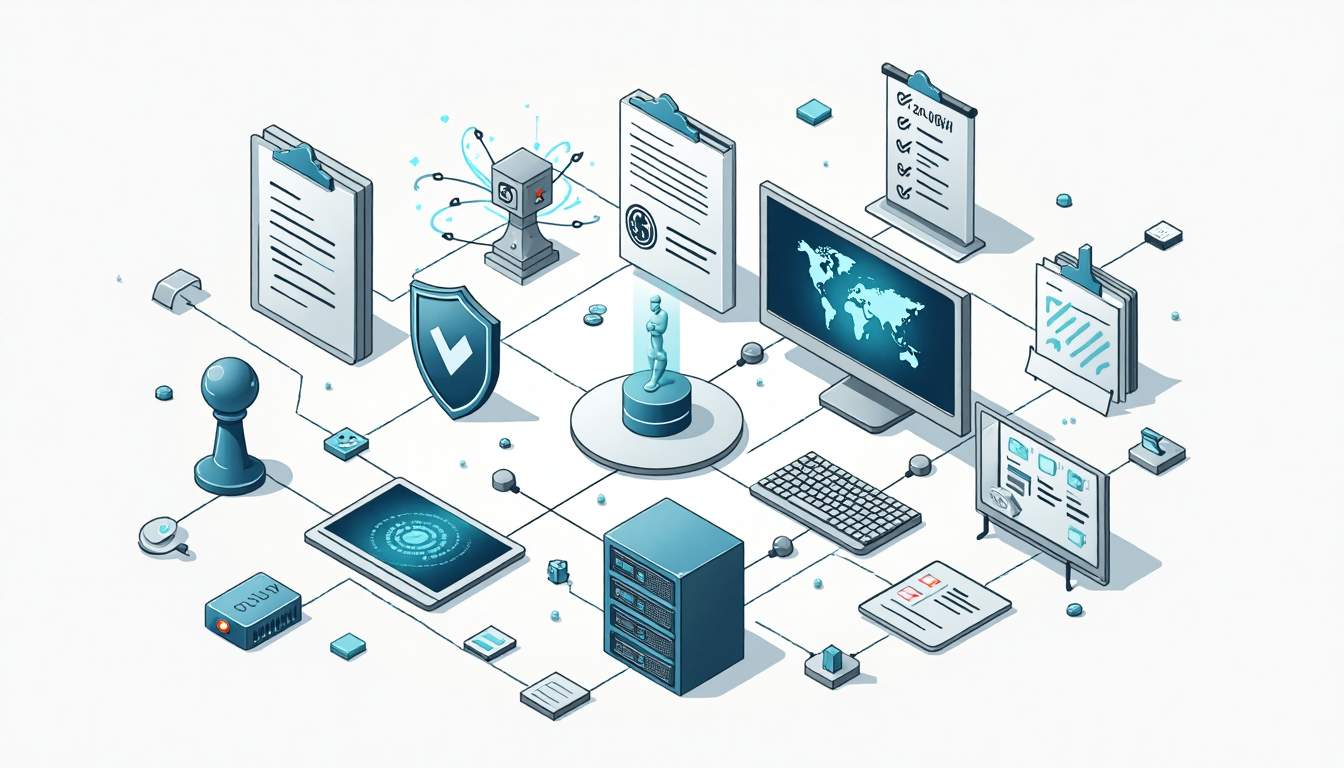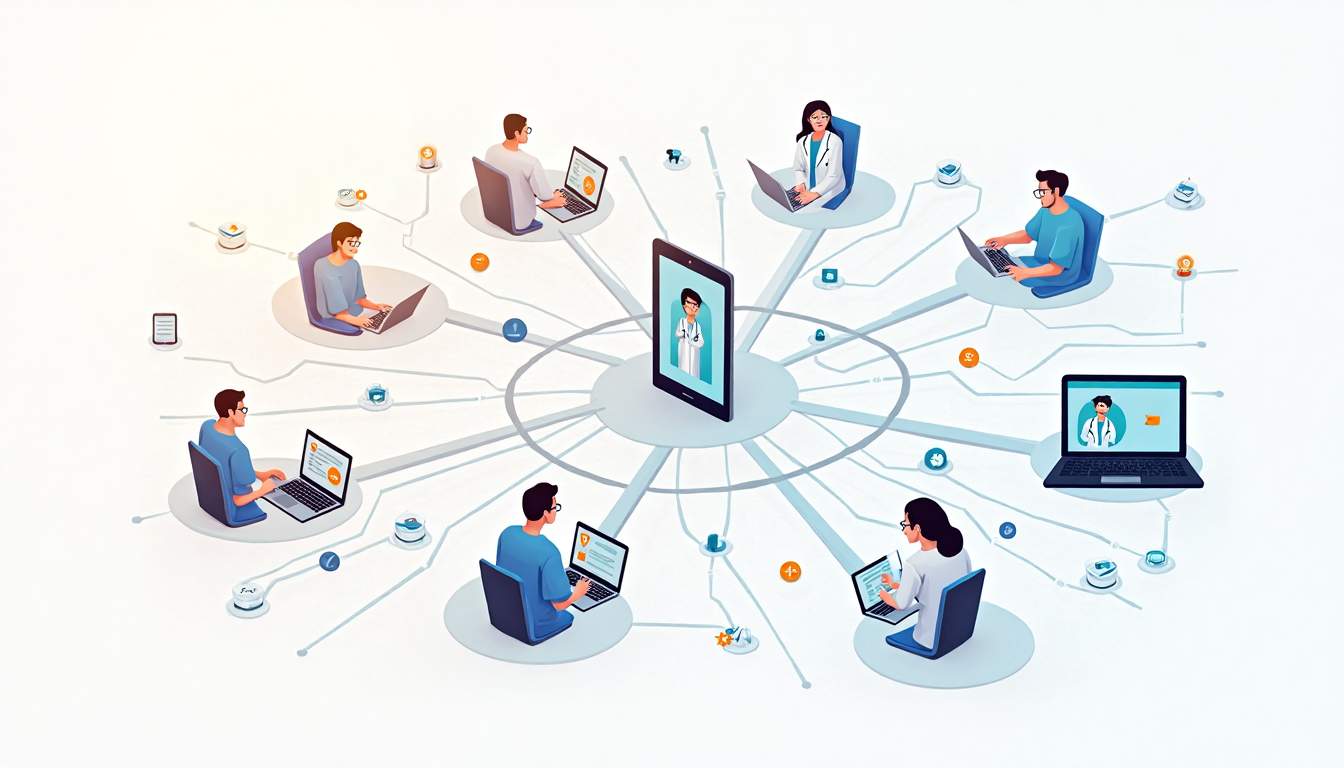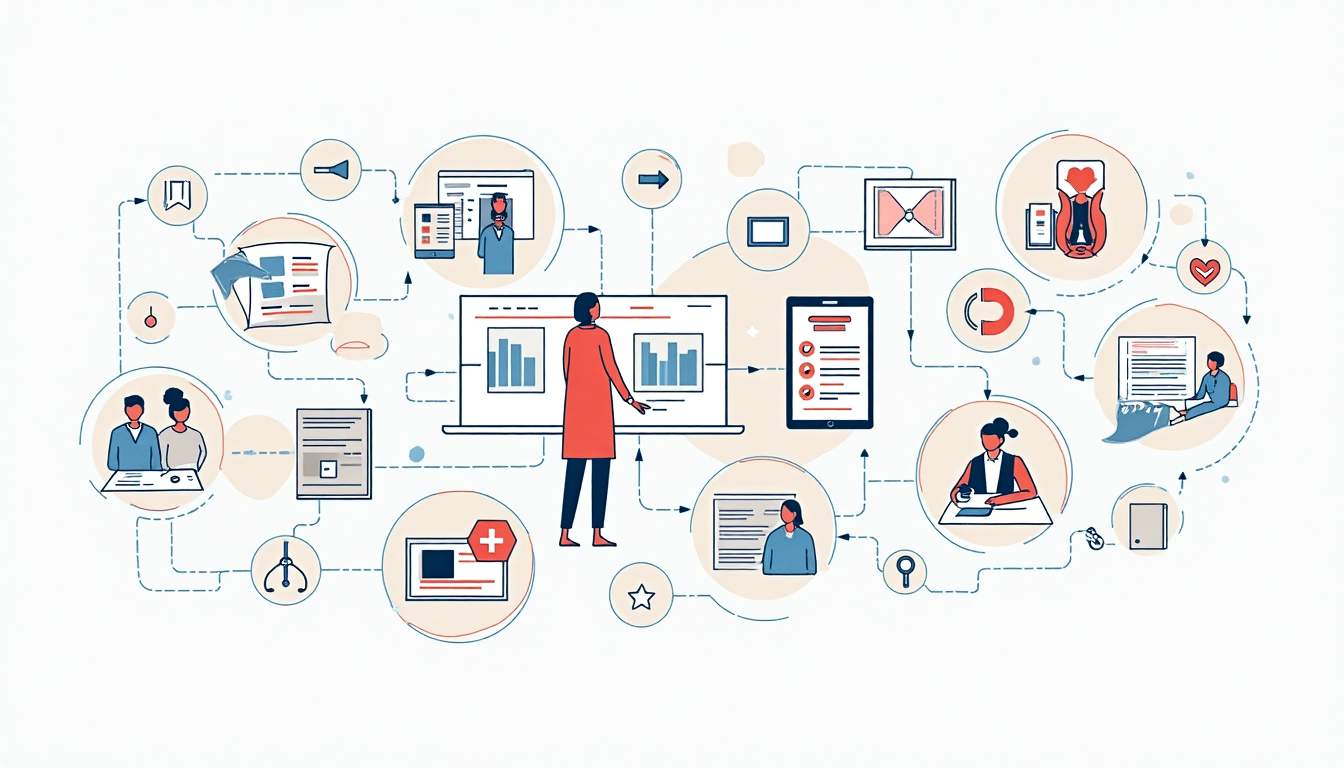
Understanding Medical IT Support: Why Healthcare Systems Rely on It
In the rapidly evolving world of healthcare, the integration of technology has become paramount.
Medical IT support plays a crucial role in ensuring that healthcare systems operate smoothly, efficiently, and securely.
From electronic health records (EHR) to telemedicine, the reliance on IT support in healthcare has never been more significant.
This article delves into the various aspects of medical IT support and explores why healthcare systems depend on it.
The Role of IT Support in Modern Day Medical Practices
Medical IT support encompasses a wide range of services designed to facilitate the effective use of technology in healthcare settings.
Its primary goal is to ensure that healthcare providers can deliver high-quality patient care without technological interruptions.
Managing Electronic Health Records
One of the most critical components of medical IT support is the management of electronic health records (EHR).
EHR systems are designed to store patient information digitally, allowing for easy access and sharing among healthcare providers.
IT support teams are responsible for implementing, maintaining, and troubleshooting these systems to ensure they function correctly.
With the increasing amount of data being generated in healthcare, the importance of effective EHR management cannot be overstated.
IT support ensures that the systems are secure, compliant with regulations, and user-friendly for healthcare professionals.
This not only enhances the efficiency of healthcare delivery but also improves patient outcomes.
Furthermore, the integration of advanced technologies such as artificial intelligence and machine learning into EHR systems can help in predictive analytics, enabling healthcare providers to anticipate patient needs and tailor treatment plans accordingly.
Enhancing Communication and Collaboration Within The Practice
Effective communication among healthcare providers is vital for delivering quality care.
Medical IT support facilitates this by providing tools and platforms that enable seamless collaboration.
Whether it’s through secure messaging systems, video conferencing, or shared digital workspaces, IT support ensures that healthcare teams can communicate effectively, regardless of their physical location.
Moreover, these tools allow for real-time updates on patient conditions, treatment plans, and other critical information, thereby reducing the chances of errors and improving overall patient safety.
In a field where every second counts, the ability to communicate swiftly and effectively can make all the difference. Additionally, IT support plays a crucial role in training healthcare staff on these communication tools, ensuring that all team members are proficient and can utilize the technology to its fullest potential.
This training not only empowers staff but also fosters a culture of collaboration, where information flows freely and efficiently among all stakeholders involved in patient care.
Security and Compliance in Medical IT
As healthcare systems increasingly rely on technology, the need for robust security measures becomes paramount.
Medical IT support plays a vital role in safeguarding sensitive patient information from cyber threats and ensuring compliance with healthcare regulations.

Protecting Patient Data In The Practice
Healthcare organisations are prime targets for cyberattacks due to the wealth of personal and financial information they handle.
Medical IT support teams implement various security measures, including firewalls, encryption, and intrusion detection systems, to protect patient data from unauthorized access.
Additionally, regular security audits and vulnerability assessments are conducted to identify and mitigate potential risks.
By prioritising data security, healthcare organizations can build trust with their patients and avoid the potentially devastating consequences of a data breach.
Furthermore, the rise of telemedicine and mobile health applications has introduced new challenges in data protection, necessitating advanced security protocols that can adapt to these evolving technologies.
As healthcare providers increasingly utilise cloud services for data storage and sharing, ensuring that these platforms comply with security standards is essential in maintaining the integrity of patient information.
Ensuring Regulatory Compliance
Healthcare is one of the most regulated industries, with strict guidelines governing the handling of patient information.
Medical IT support is essential for ensuring compliance with regulations such as the ones provided by RACGP.
IT support teams are tasked with implementing policies and procedures that align with these regulations.
This includes training staff on compliance requirements, conducting regular audits, and maintaining documentation to demonstrate adherence to the law.
Failure to comply with these regulations can result in significant penalties, making IT support a critical component of risk management in healthcare.
In addition to RACGP, healthcare organisations must also navigate regulations such as the Privacy Acts, which imposes stringent requirements on data handling and patient consent.
As such, medical IT support must remain vigilant and informed about changing regulations and best practices to ensure that healthcare providers not only meet legal obligations but also uphold the highest standards of patient care and privacy.
The Impact of Telemedicine on IT Support
The rise of telemedicine has transformed the way healthcare is delivered, creating new challenges and opportunities for medical IT support.
As more patients seek virtual consultations, healthcare organizations must ensure that their IT infrastructure can support these services effectively.

Infrastructure Requirements for Telemedicine
Implementing telemedicine solutions requires a robust IT infrastructure capable of handling increased data traffic and providing reliable connectivity.
Medical IT support teams are responsible for assessing the existing infrastructure and making necessary upgrades to accommodate telehealth services.
This includes ensuring that video conferencing tools are secure and user-friendly, as well as providing technical support to both healthcare providers and patients.
By facilitating a seamless telemedicine experience, IT support enhances patient satisfaction and expands access to care.
Moreover, as telemedicine continues to evolve, organszations must also consider the integration of electronic health records (EHR) with telehealth platforms.
This integration allows for real-time access to patient data during virtual consultations, ensuring that healthcare providers have all the necessary information at their fingertips.
Additionally, the implementation of cloud-based solutions can offer scalability and flexibility, allowing healthcare organizations to adapt quickly to changing demands and patient needs.
Training and Support for Healthcare Providers
As telemedicine becomes more prevalent, healthcare providers must be equipped with the skills and knowledge to utilize these technologies effectively.
Medical IT support plays a crucial role in providing training and ongoing support to ensure that healthcare professionals can navigate telemedicine platforms with confidence.
From troubleshooting technical issues to offering guidance on best practices, IT support helps healthcare providers adapt to this new mode of care delivery.
This not only improves the efficiency of telemedicine services but also enhances the overall patient experience.
In addition to technical training, IT support teams are increasingly focusing on educating healthcare providers about the importance of patient privacy and data security in a telemedicine context.
With the rise of cyber threats, understanding how to protect sensitive patient information during virtual consultations is paramount.
Workshops and training sessions can equip providers with the knowledge to recognise potential security risks and implement best practices, fostering a culture of safety and trust in telehealth services.
Streamlining Administrative Processes
In addition to supporting clinical operations, medical IT support is instrumental in streamlining administrative processes within healthcare organisations.
By automating routine tasks and optimizing workflows, IT support enables healthcare providers to focus more on patient care.

Automation of Routine Tasks
Administrative tasks such as appointment scheduling, billing, and insurance verification can be time-consuming and prone to errors.
Medical IT support teams implement software solutions that automate these processes, reducing the administrative burden on healthcare staff.
Automation not only saves time but also minimizes the risk of human error, leading to more accurate billing and improved patient satisfaction.
By streamlining these processes, healthcare organisations can allocate more resources to direct patient care.
Data Analytics for Improved Decision-Making
Data analytics is another area where medical IT support can make a significant impact.
By harnessing the power of data, healthcare organisations can gain valuable insights into patient outcomes, operational efficiency, and resource allocation.
IT support teams help implement data analytics tools that enable healthcare providers to make informed decisions based on real-time information.
This data-driven approach can lead to improved patient care, better resource management, and enhanced overall performance within the organization.
The Future of Medical IT Support
As technology continues to advance, the role of medical IT support will evolve alongside it.
Emerging technologies such as artificial intelligence (AI), machine learning, and blockchain are poised to revolutionize the healthcare landscape, presenting both opportunities and challenges for IT support teams.
Embracing Emerging Technologies
AI and machine learning have the potential to enhance diagnostic accuracy, predict patient outcomes, and streamline administrative processes.
Medical IT support will be essential in integrating these technologies into existing healthcare systems and ensuring that they are used effectively.
Blockchain technology also holds promise for improving data security and interoperability in healthcare.
By providing a secure and transparent way to share patient information, blockchain can enhance collaboration among healthcare providers while safeguarding patient privacy.
IT support teams will play a crucial role in implementing and managing these innovative solutions.
Continuous Education and Adaptation
With the rapid pace of technological change, continuous education and adaptation will be vital for medical IT support professionals.
Ongoing training and professional development will ensure that IT teams remain up-to-date with the latest advancements and best practices in healthcare technology.
Moreover, fostering a culture of innovation within healthcare organisations will encourage collaboration between IT support and clinical staff, leading to more effective use of technology in patient care.
Embracing change and being open to new ideas will be essential for navigating the future of medical IT support.
Medical IT support is a cornerstone of modern healthcare systems, enabling providers to deliver high-quality care efficiently and securely.
From managing electronic health records to ensuring compliance with regulations, the role of IT support is multifaceted and critical to the success of healthcare organizations.
As technology continues to evolve, the importance of medical IT support will only grow.
By embracing emerging technologies and prioritizing continuous education, healthcare organisations can ensure that they are well-equipped to meet the challenges of the future.
Ultimately, the collaboration between healthcare providers and IT support teams will be key to enhancing patient care and improving health outcomes.



